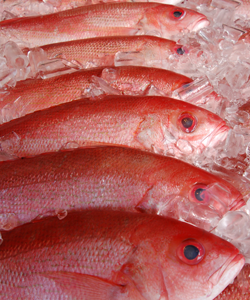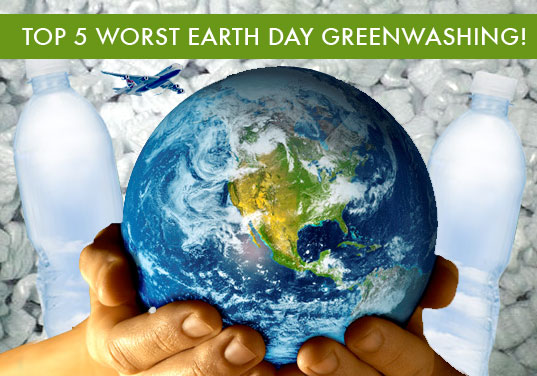
Do you know what seafood you are eating?
http://www.ecowatch.org
Many of us eat seafood, because we like the taste, for religious or cultural reasons, and or for health related reasons; high in omega fatty acids, healthier than red meat etc. I particularly enjoy good seafood paella, a platter of sashimi or a plate of fish and chips. However, in order to ensure that the seafood that I eat is sustainable and healthy, I always try to ensure that the fish I eat is local and caught or farmed in a sustainable and ethical manner. In this way I also try to minimize the chance that the fish I eat is not full of pollutants and heavy metals.
I am often “that” person who while at a meal or while out shopping quizzes the wait staff or manager about the origin of the fish on offer. Sometimes the discussion is informative and helpful but very often I get blank looks and end up having to explain the importance of eating local, ethical and sustainable, to someone who is generally looking at me like I am a crazy person and thinking to themselves that I should just “get on with it and make a decision!”
Fortunately, in the last few years the various stakeholders within the biodiversity and seafood sector have tried to educate the public about sustainable seafood consumption and how to choose seafood that is healthy without becoming a contributor to fishery collapse and loss of biodiversity.
These education measures have taken the form of outreach programs, licensing and quota systems, DNA testing, cell phone apps, pocket guides, websites aimed at preventing the consumption of seafood that is unsafe for consumption or the consumption of species that are on their way to becoming extinct or endangered. This has made my dining and seafood shopping experience a bit easier and calmer.
However, I recently came across an article that mentioned seafood fraud and seafood laundering, that sent me into a bit of a panic. I had never actually though of seafood fraud and seafood laundering ever having anything to do with each other let alone having anything to do with me.
“Regardless of the reason, seafood fraud is illegal and can have serious consequences for fish, fishermen, fishmongers, and fish-eaters.” (www.fishwatch.gov).

Popular fish and their frauds (from “Bait and Switch,” Oceana). Correct answers are : 1. Fish on the left is Nile perch. 2. Right is mako shark. 3. Right is rockfish. 4. Left is farmed Atlantic salmon.
Seafood laundering occurs when seafood and seafood products are laundered through a third-party to avoid duties and licenses and increase catches and profits. Such laundered seafood enters the market illegally and results in mislabeled seafood, seafood fraud, and ecosystem collapse and resource depletion. Seafood fraud also occurs when farmed, important or endangered seafood is labeled as sustainably sourced and or wild seafood. Seafood fraud can happen at each step of the supply chain – the restaurant, the distributor, or the processing and packaging phase. Seafood fraud occurs “for a variety of reasons, from simple misunderstandings or lack of information to blatantly deceiving consumers in order to increase profits, or even worse, laundering illegally harvested seafood (http://oceana.org).
Seafood fraud not only causes the collapse of fisheries which would in turn affect our dietary choices and make dining out or grocery shopping that much more stressful, but, seafood fraud also has significant impacts such as;
- Impacts on natural systems: The loss of biodiversity and ecosystem services due to the fact that consumers may be misled about the nature and status of fish stocks and the condition of the marine environment due to mis-labeling, which maintains the appearance of a steady supply of popular fish species despite severe overfishing. This result in the general public is being unaware that the species that they are consuming is being rapidly depleted or threatened.
The oceans provide food, medicine, energy and serve as a recreational resource, but they are not as once commonly believed, an inexhaustible resource. (http://oceana.org)
- Undermining of conservation efforts as a result of mis-labeling. Mis-labeling of seafood makes it difficult for consumers to make eco-friendly choices despite the will to do so.
- Negative health impacts: Consumers may end up consuming seafood that contains high levels of contaminants and toxins such as mercury. This could be hazardous to the health and wellbeing of women trying to conceive, pregnant woman, nursing mothers and young children.
- Negative impacts the livelihoods of communities that depend on the seafood harvesting and processing industry.
- The creation of a market for illegal fishing by making it easy to launder illegally caught seafood products through legitimate markets. This results in the undermining of conservation efforts to prevent overfishing and accidental capture of at-risk species and hurts honest fishermen. (www.oceana.org)
Despite the fact that you may be trying to consume only sustainably caught and healthy seafood (two points for trying) that is not full of toxins and or about to go extinct there is quite a high possibility that you have consumed illegal and fraudulent seafood.
I thought I would be able to provide a tip on how to ensure that your seafood is legal, non-toxic and sustainable. However, I find myself stumped ….. Clearly, the seafood labeling and conservation initiatives are not fool-proof. I guess once again the message is the same; don’t blindly accept the packaging, advertising, greenwash and the hype and try to ensure that your individual consumption of seafood is in fact what it is labeled as being.
References and additional reading for the super keen;
Seafood advice






